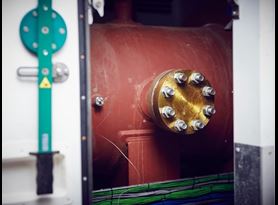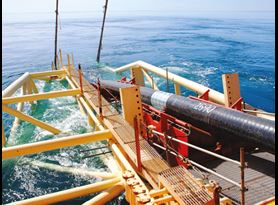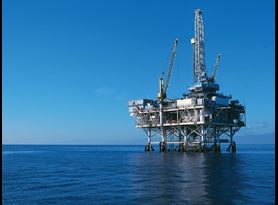Element’s pipeline and field-joint coatings services help you determine the performance of suitable pipeline coating protection materials to ensure your entire pipeline, or subsea production structure resists corrosion and can withstand extreme environmental and service conditions throughout its design life. Testing is carried out to widely recognized International and National standards such as ISO 21809 pts 1-3.
Field-joint coatings are applied on offshore lay vessels where offshore pipelines are welded together in either single or double joint segments. Exposure in a hostile environment and vulnerable to corrosion, the welded area is often the weakest point within a pipeline. It is critical to select a suitable material used to protect the field joint.
Pipeline and field joint coatings standards
Element provides field-joint testing services to offshore and onshore pipeline customers in accordance with the primary industry-standard ISO 21809. Our expertise encompasses a variety of test methodologies, including holiday detection, peel strength, adhesion testing, water immersion, lap shear resistance, cathodic disbondment, impact resistance, indentation resistance, and flexibility.
Our ISO 21809 test procedures
We conduct testing throughout the pipeline project process, including PQT and PPT qualifications:
- Application procedure specification
- Pre-qualification trial
- Pre-production trial
- Inspection and testing plan
- Quality assurance versus quality control
The Element advantage
As a leading testing partner to the oil and gas industry, we leverage our expertise in Welding, NDT and Coatings to deliver world-class field joint-coating services to our customers. We understand the needs of the industry and utilize the latest equipment and technology solutions to meet the demands of today’s challenging environment.
Find out how we have helped our customers through our Subsea7 Case Study. We are here to help, contact our experts today.
Failure Analysis of Pipeline Coatings
This free white paper includes an extensive case study of the failure analysis of a 12-inch diameter Fusion Bonded Epoxy (FBE) coated steel pipe that showed blistering of the coating and corrosion on the surface.
Read MorePaints and Coatings Failures: A Guidebook on Causes and Remedies
Failure analysis is a valuable tool when investigating the root causes of asset failure, and developing a corrective action plan to ensure your paints and coatings adhere and remain intact.
READ MOREStandard Update: Norsok M 501 edition 7
One of the most important standards for coatings testing in the oil and gas industry has undergone a major revision. This article explains the consequences for manufacturers and testing requirements.
Read MoreRelated Services

Thermal Insulation Coatings
Our industry-leading coating expertise covers a wide range of applications and client needs. Using state-of-the-art equipment and techniques, we provide consulting, investigation and testing of thermal insulation coatings.

Coatings Testing
Find out about our Oil & Gas coatings testing services and how we help to make certain that materials, products and pipelines are protected from corrosion, ultraviolet light, water penetration, heat, abrasion and chemicals.

Cathodic Disbondment
Cathodic disbondment testing is often used as part of a suite of tests to to investigate the behavior of the coating system when subjected to either sacrificial or impressed current flows.

Oil & Gas
Element's global platform of laboratories offers advanced services designed to test and qualify materials intended for use within the environments of the future.

